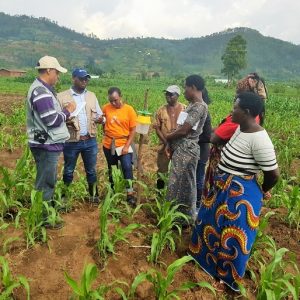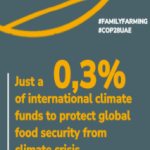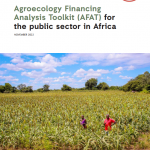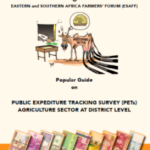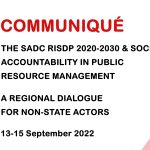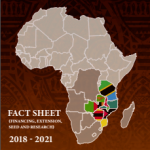Eastern Africa nations to bring the fight against hunger back on track
The FAO Subregional Office for Eastern Africa concluded its 13th High-level Multidisciplinary Meeting with an urgent call to member countries in Eastern Africa to redouble their efforts to bring the fight against hunger back on track.
The senior officials of the ministries of agriculture and representatives of regional economic communities from the Eastern Africa subregion gathered from 16 to 20 September 2019 in Bishoftu, Ethiopia, to review the major challenges that affect the agricultural sector, and agree on sustainable solutions. They stressed the need for a holistic approach to root out hunger, malnutrition, rural poverty, and stem the tide of conflict and migration.
The Ethiopian State Minister for Agriculture, Gebre-Egziabher Gebre-Yohannes called for a mind-set shift to consider agriculture as a business, to boost public and private investments, and to promote large-scale initiatives or programmes in the agricultural sector, for Africa to be able to feed the estimated over 2 billion people by 2050.
“With rapid population growth, unflattering history of food self-insufficiency, and fragile ecosystems, Eastern Africa nations are required to fast track the uptake of innovation and technology to manage the uncertainties for the next generation,” remarked the State Minister.
Addressing the meeting, David Phiri, FAO Subregional Coordinator for Eastern Africa and Representative to the African Union and UNECA, expressed concern with the current food insecurity situation in Eastern Africa. He explained that the subregion has an estimated 133 million (31 percent) under-nourished people, a full one-half of the total undernourished people in Africa (256 million) as a whole, and much higher than the average prevalence of undernourishment in Africa (20 percent).
“This remains a huge concern for FAO, as this means that the Eastern Africa subregion will not achieve the milestones set in the Malabo Declaration and in SDG2, to end hunger in Africa by 2025 and 2030, respectively,” he underlined.
Phiri further noted that ongoing changes and reforms at countries, the United Nations and FAO would provide new opportunities to work closer and better for the good of all. On the part of FAO, the arrival of the new Director General will shift focus to bring south-south cooperation, digitalization of agriculture, and capacity building, among others, at the top of the agenda. He recalled that the changes at UN level are already affecting the way FAO works in support of the Agenda 2030 of the UN, and Agenda 2063 of the African Union. He predicted that the African Continental Free Trade Area will have a transformational impact on Africa’s agriculture and advised that FAO should be very much involved to support countries in its implementation. Climate change, conflicts, transboundary pests and diseases shape priorities Deliberations on changing contexts revealed that climate change, conflicts, and emerging transboundary animal and plant pests and diseases would continue to shape the priorities in the agriculture sector in the subregion.
Recognising these factors, the FAO Subregional Office for Eastern Africa launched a new Priority Framework and a Resource Mobilization Strategy. The Framework stresses the urgent need to align the priorities of countries, partner institutions and FAO towards a hunger-free and prosperous Eastern Africa.
At the opening of the meeting, Fatouma Seid, FAO Representative to Ethiopia, the host country, highlighted that, “The meeting strengthens collaboration and renews commitments to the priorities all parties set across the countries in the subregion for better planning, mutual accountability and impact”.
The MDT context
The 2019 FAO SFE Multidisciplinary Team Meeting provides an opportunity to discuss and exchange information on the performance of FAO programmes in the subregion. Senior government representatives from nine East African nations (Burundi, Djibouti, Eritrea, Ethiopia, Kenya, Rwanda, Somalia, South Sudan and Uganda), and delegates from Regional Economic Communities, participated in the meeting. Additionally, senior leadership from FAO Headquarters and FAO Regional Office for Africa, as well as the Senior Management Team, FAO Representatives and their deputies from the Eastern African countries, and the Management Team, the Technical Officers and staff from the FAO Eastern Africa Office have partaken in the meeting.
The meeting discussed achievements, challenges and potential solutions for the improved delivery of FAO’s support in the Eastern Africa subregion, as captured in the newly developed Priority Framework. The meeting also provided two parallel communication trainings on effective communications for the leadership and for the administrative support services staff. The 13th Annual MDT Meeting came in the context of a renewed FAO commitment to the countries of Eastern Africa, the UN Agenda 2030 and Africa Union Agenda 2063, including the Malabo Commitments. This year’s theme was, “Managing the implications of change for country priorities in Eastern Africa.”

















